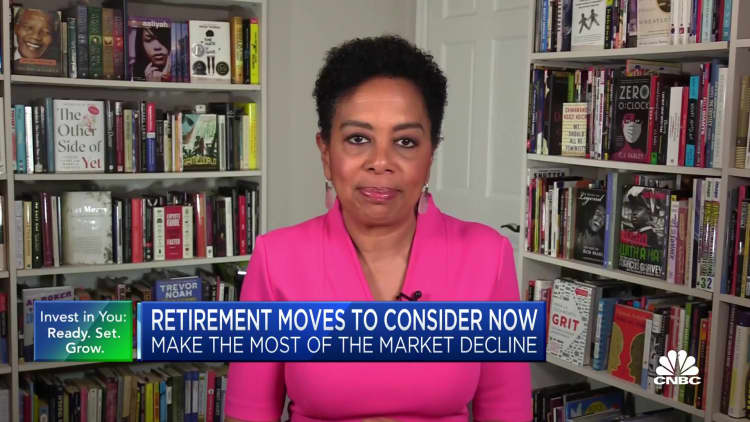
Shapecharge | E+ | Getty Images
Tax rules for Roth individual retirement accounts don’t require owners to withdraw money during their lifetime — a valuable proposition for retirees who don’t need to touch the money and want to let their investment continue growing tax-free.
But those rules change once the account holder dies — meaning heirs could get tripped up if they’re not careful.
Specifically, inherited Roth IRAs carry required minimum distributions, or RMDs. That means a beneficiary who inherits a Roth IRA generally must withdraw money within a certain amount of time.
Generally, heirs must empty the Roth IRA of all funds within 10 years of the original owner’s death. But the rules vary depending on the person’s relation to the decedent and the year in which they died.
A retirement law passed in 2019 created the 10-year time frame.
Previously, heirs could “stretch” Roth IRA withdrawals over their lifetimes.
A grandchild, for example, could pull money out over decades; depending on investment growth, the account might never be emptied but instead keep accumulating wealth free of taxes.
“That was the big change: They took away the stretch,” said Timothy Gagnon, an associate professor of accounting at Northeastern University.

The new rules apply to Roth IRAs inherited in 2020 or later. The old “stretch” rules still apply to earlier inheritances, and to some remaining beneficiary types, as explained further below.
Distributions aren’t taxable if the Roth IRA has been open for at least five years. Investment earnings are taxable if that condition isn’t met, however.
The typical penalty that applies for early IRA withdrawals — before age 59½ — doesn’t apply to inherited Roth IRAs.
Withdrawal rules depend on the beneficiary
The new 10-year distribution rule generally applies to “non-spouse beneficiaries,” often kids and grandkids, said Ed Slott, a certified public accountant and IRA expert based in Rockville Centre, New York.
But a surviving spouse isn’t beholden to the rule. They can roll their inheritance into their own Roth IRA and not have any mandatory withdrawals during their lifetime.
“They’re the only one that can keep it for the rest of their life and never have to take it out,” Slott said.
Other individuals — called “eligible designated beneficiaries” — also get preferential tax treatment.
They include minor children of the original account holder, up to age 21; chronically ill or permanently disabled people; and those who are within 10 years of age of the original account holder — a sibling or friend, for example.
This class of beneficiaries can continue to “stretch” distributions over their lives. The calculation for annual withdrawals is based on the Single Life Expectancy table published by the IRS, Slott said.
It’s generally wise for these beneficiaries not to roll over the inherited funds into their own IRA, Gagnon said. Commingling inherited with non-inherited money may be confusing when trying to calculate your annual RMD, he said.
Make sure the beneficiary is ‘designated’
These rules only apply if a beneficiary is “designated,” Slott said. That means they must be named by the original owner on the account beneficiary form.
If an account is inherited via other means — through a will, for example — the heir’s time frame is halved, from 10 years to five years, Slott said.
“That cuts in half the tax-free wealth accumulation for the beneficiary,” Slott said. “This is why it’s so important to look at beneficiary forms.”

Designating an estate and some types of trusts as the account beneficiary also triggers a five-year distribution rule, Gagnon said.
Ultimately, failing to follow the distribution rule for inherited Roth IRAs generally triggers a 50% tax penalty, Gagnon added.
Since a withdrawal generally doesn’t come with income tax, “why not get it out?” Gagnon asked. “Why get into a penalty if you don’t have to? It’s free money.”
